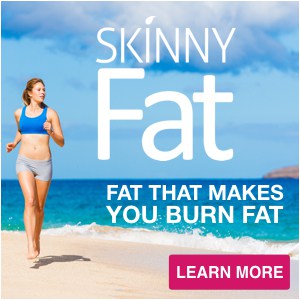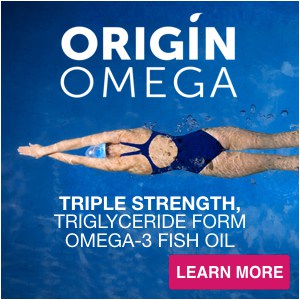The great summer slim-down season is upon us! We hope you are revving up, getting out, enjoying your local farmer’s markets, and basking in the vitamin D-inducing sun. Whatever your summer plans, if you are anything like us, we know a bathing suit is likely part of them.
But there are more benefits of a slim waistline than just pool-side confidence. Obesity is a global threat- an underlying factor in many life-altering and life-threatening chronic diseases like heart disease, stroke, cancer, diabetes, autoimmune diseases, inflammatory conditions, bone and joint problems, and more. According to the Centers for Disease Control and Prevention (CDC), in 2015-2016, over 39 percent of American adults were obese, which is 93.3 million Americans.[1] Think about that. That’s up from 78 million since we released our book Naked Calories in 2012. 15 million new cases that quickly. Obesity rates rise 1 percent per year. That’s a clear health crisis.
Micronutrient Deficiency Drives Weight Gain and Cravings for Poor Food
We believe the majority of obesity could be prevented if we took in adequate nutrition. Obesity is a sign of malnutrition, not of overnutrition. Metabolism works smoothly when the tools it needs are available: micronutrients. Multiple micronutrient deficiencies can predispose you to obesity. Most people think of malnutrition as a problem in developing countries for people who don’t have enough food. But our modern life has a modern form of malnutrition: we eat a lot of “naked calories.” These calories are found in processed foods with missing or unavailable micronutrients. Naked calories cause weight gain and micronutrient deficiencies, leading to obesity and chronic disease.
But the kicker is that we crave foods loaded with naked calories when we are malnourished- the sweet and salty snacks. For those fighting what we call “the crave cycle,” listen up: you might be able to bust that cycle when you focus on micronutrient sufficiency. Your sweet tooth may be a sign of a magnesium deficiency. Your salty tooth may be a sign of a calcium, iron, or potassium deficiency. Don’t give in and make the situation worse! When you are sufficient in these essential minerals, you may find a significant reduction in your snacking habits comes easily.[2]
Now that you know better, let’s flip the script- let’s talk about the micronutrients you need to reduce your risk of obesity, and the foods you can choose to slowly whittle away at those saboteur cravings. Don’t fear food, but choose wisely. Give your body what it needs and you may find cravings for diet-destroying foods simmer down in the heat of summer.
Make the Most of Slimming Micronutrients
As we discuss in our books Naked Calories and The Micronutrient Miracle, the list of micronutrient deficiencies associated with overweight/obesity includes vitamins A, B3, B6, B12 C, D, E, K, choline, calcium, chromium, iodine, iron, magnesium, potassium, selenium, zinc, omega-3 fatty acids, alpha-lipoid acid and CoQ10. All of these nutrients play a role in how we regulate hunger and process food. If you need these nutrients to process food calories and you are not getting them when you eat those calories, you can quickly spiral into insufficiency and even deficiency. For instance, in a 2007 landmark study of women in the journal Economics and Human Biology, researchers revealed that micronutrient deficient women were 81 percent more likely to be overweight/obese than women who were not deficient![3] That goes beyond risk to almost a guarantee. Do we have your full attention yet? Let’s look at the slimming details behind some of these critical micronutrients:
- Vitamin C plays a critical role in supporting our stress response, which in turn has a significant effect on our weight. When life gets overwhelming, we produce high amounts of the stress hormone cortisol, which spikes appetite, boosts our quick energy access, and encourages abdominal weight gain. All stress management support, including essential micronutrients, can help reduce excessive cortisol levels and its belly-boosting effect. Another reason vitamin C may be linked to obesity is that it is an important component in the creation of carnitine, which helps your body turn fat into fuel. Re- searchers at Arizona State University proved that individuals with low levels of vitamin C burned 25 percent fewer calories during the same period of exercise than those who had adequate vitamin C levels. Great sources of vitamin C include raw fruits and vegetables as well as sauerkraut and other fermented vegetables.
- Vitamins B3, B6, B12, and Choline. Vitamins B3, B6, and B12 play multiple roles in metabolism and obesity risk. For instance, niacin (vitamin B3) helps move energy to ATP, the main energy molecule that powers your cells’ activities. Vitamin B6 is needed to process all proteins and convert them into other useful compounds, such as hormones that control hunger and satiety. You need vitamin B12 to produce strong stomach acid so you can absorb critical minerals like zinc, calcium, magnesium, and iron that support a healthy weight. Moreover, these micronutrients play key roles in making the neurotransmitters dopamine and serotonin that can are implicated in emotionally-driven food cravings. Animal proteins in particular can help deliver these three essential micronutrients, but keep your protein sources diverse.
- Vitamin D. Vitamin D may slow fat cell growth, and vitamin D deficiency actually lowers your blood levels of the hormone leptin, which tells your brain that you are full. Both studies on children and adults have shown that vitamin D deficiency increases the likelihood of obesity. For instance, a study from the Medical College of Georgia assessing 650 children found that the lowest vitamin D levels were associated with the highest levels of body fat- and abdominal fat, the type of fat linked most closely with metabolic disease. Given that over 70 percent of children in America are estimated to be deficient in vitamin D and that obese children are more likely to become obese adults, these numbers are very alarming.[4] Sun exposure, fatty fish like wild-caught salmon, and supplementation can help you ensure adequate levels.
- Calcium, Magnesium, and Potassium. As mentioned above, deficiencies in calcium, potassium, iron, and magnesium could be driving cravings for salt and sugar- so pay attention to what your body is asking for! All three of these minerals, particularly magnesium, are more easily lost when we are under high stress. A diet rich in whole foods can provide many of these major minerals you need- but consider what you might be losing due to stress or other everyday micronutrient depleters!
- Chromium and Zinc. These minerals are critical for the proper functioning of the insulin receptor, and chromium has been shown to directly improve insulin sensitivity in many studies. When these minerals are not readily available, you can have trouble being sensitive to insulin’s message, challenging your ability to regulate your blood sugar. Unbalanced blood sugar can lead to cravings, moodiness, and irregular energy levels, which many use empty-calorie foods to address. Zinc deficiency can further crash your sense of taste, making it easier to eat more looking for that satisfaction. While plant-and animal based foods can theoretically provide these micronutrients, consider supplementation as well to cover your bases.
- Iron. In a study published in the International Journal of Obesity, researchers examined overweight Israeili children and adolescents to determine if a link existed between weight and iron deficiency, and researchers found that the children with the highest weight and BMI had the most extreme iron deficiency.[5] Iron participates in many reactions that help your body use energy from your food. Iron supports your body’s production of carnitine, which helps you get the fuel (fat) into the engine (mitochondria) for burning! Iron is also required for thyroid function[6] and deficiency is common in those with hypothyroidism, a condition in which metabolism slows and weight gain is more likely.
- Omega-3 Fatty Acids. Although most people only think of vitamins and minerals when they think about micronutirents, essential fatty acids such as omega-3 and omega-6 are also essential micronutrients! Omega-3 fatty acids help encourage us to burn fat for energy and has been shown to decrease the number of fat cells. They also make stress far easier to handle. Remember a few moments ago when we discussed the role of vitamin C in reducing stress-induced cortisol levels? Supplementation of omega-3 fatty acids can help fight back against the body’s stress-induced production of cortisol by as much as 22 percent. Studies evaluating omega-3 fatty acids’ impact on weight loss include a study at Gettysburg College in Pennsylvania when overweight test subjects taking omega-3 fatty acids tested at lower cortisol levels and shed 3.5 times more body fat while boosted lean muscle mass![7] In a study of 20 obese women on a restricted low calorie diet, omega-3 fatty acid supplementation correlated with a 20 percent weight reduction compared to placebo and a 15 percent reduction in BMI! Think thin with Origin Omega, our cleanly sourced fish-burp free omega-3 powerhouse- and don’t be discouraged from eating your omega-3s in salmon, sardines, or other fatty fish forms as well!
Thin-dulge with Rich Foods and Smart Supplementation
Dig into a plate rich in the micronutrients mentioned above! Not sure how? Here’s a list to get you started:[8]
- Encourage a balanced diet, meaning you keep your food choices diverse.
- Try to eat at least a small amount of protein at every meal or snack, especially beef, chicken, clams, crab, cod, herring, mussels, oysters, rainbow trout, salmon, sardines, scallops, shrimp, red snapper, tuna, turkey, chia seeds, flax seeds, and dairy products like cheese, cream, milk, and yogurt.
- Choose healthy fats that support weight loss like butter, coconut oil, eggs, and SKINNYFat as well as omega-3 from fatty fish and Origin Omega
- Load up on non-starchy vegetables such as asparagus, avocado, broccoli, Brussels sprouts, cabbage, cauliflower, dark leafy greens, garlic, jalapeno peppers, mushrooms, onions, pumpkin, peppers, romaine lettuce, seaweed, snow peas, tomatoes, and yellow bell peppers.
- Indulge in healthy carbohydrates like brown rice, green peas, kidney beans, acorn squash, lentils, lima beans, navy beans, potatoes, sweet potatoes, and quinoa! Fruits rich in weight-loss-support-nutrients include bananas, grapefruit, limes, oranges, papaya, prunes, raisins, strawberries, and watermelon.
- Consider a diverse array of organic herbal, white and green teas that support weight loss, nurture a healthy liver, and eliminate the need for sugary beverages.
Ready to cool down a hot summer with a micronutrient-dense triple threat shake rich in these key nutrients? While the road to sustainable weight loss may be smooth, bumpy, and everything in between, it can be both delicious and life-altering! There is no scientific doubt that micronutrient sufficiency is critical for your health today, in years to come, and can make or break your waistline. Sound overwhelming? That’s why we’re here to help you. Cover your bases with the anti-competition technology in our Nutreince multivitamin and pick up a copy of Micronutrient Miracle today to learn more about getting the essential micronutrients you need and deserve!
[1] https://www.cdc.gov/obesity/data/adult.html











